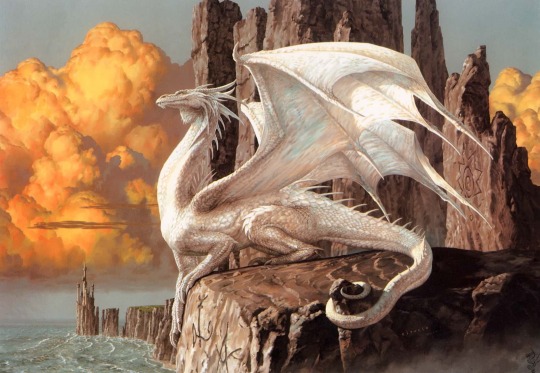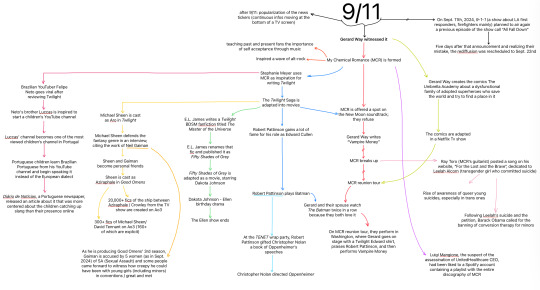Don't wanna be here? Send us removal request.
Text
“When you’re mean to me this is who ur being mean to” meme with Sanrio characters and small kitten is overused. Trite. It’s done I can’t relate. When ur mean to me this is who you’re being mean to:

34K notes
·
View notes
Text
Here’s my 9/11 pipeline, inspired by the work of @gender-luster and @lena-cant , completed with researches on my own. (I update it when needed)
IF YOU USE IT, PLEASE CREDIT ME!

(Please ignore the red underlining, i haven’t found out how to fix it yet; will update if I success to remove it)
317 notes
·
View notes
Text
Epic: The Musical - Lyric Textual Analysis 3 - Full Speed Ahead
(Skip to the end if you want to just see my analysis of Full Speed Ahead.)
Part 3 in my series of basic textual analysis of every song from Epic: The Musical. In this entry, I'm looking at Full Speed Ahead. Go look at part 1 for my approach for this post series, but TL;DR I am going through the exercise of looking closely at each song to see what information is explicitly and implicitly conveyed to the audience through the lyrics alone.
I've been thinking about what's next after this initial analysis series. Like, in the overall scheme of developing Psychagogue: A Digital Musical, why am I bothering to spend my time on this? Like, is what I'm doing really "analysis" if I'm just restating what the lyrics are saying? Over my vacation this past week, I think I was able to answer this for myself. Basic analysis is a necessary (albeit, arguably boring) foundation for basically any other serious analysis. We can't do anything with it, if we don't first know what it is. I envision it like this:
1. Basic Textual Analysis - What is the text of this work saying? What is the text of this work implying? What is the text of this work not saying? Only by understanding the actual content of the work can we move onto
2. Mapping Themes, Threads, Arcs, and Connections - This is the exciting part where we put all these concrete observations next to each other and see what connections we find.
For example:
If we follow Odysseus' motivations over the course of the work, what do we see? His secondary motivations shift, but consistently his strongest motivation is making it home to Penelope.
What if we do the same for Eurylochus? He seems ideologically inconsistent at first, but his actions make sense once you consider he is motivated primarily by fear.
We notice a recurring thread of Odysseus having difficulties sleeping; why is he experiencing this, and how does this thread conclude? He experiences this due to guilt over the deaths he causes, but ultimately comes to terms with the philosophy of ruthlessness, and finds peace in succeeding in his goal of making it home to Penelope.
Why are the lyrics to "Suffering" included when Odysseus is considering his choice in "Thunder Bringer?" Because the Sirens represent the "monster" he has chosen to become, and "becoming the monster" (i.e. sacrificing his crew) can reduce the amount of suffering he would have to endure.
Why do some established facts or characterizations differ from each other? This happens a number of times throughout the work. From what I've identified, it usually either means someone is wrong, someone is lying, two characters have different perspectives, or something has changed. The contradiction exists to highlight this.
Why don't we see Odysseus and his crew actually winning the war in Troy? It's not not a relevant detail for the story being told and can be glossed over.
Why don't we see and hear the exact moment Odysseus makes his choice to Zeus in "Thunder Bringer"? Because it's more dramatic this way and enhances the story being told.
And lots more like this, with the concrete details to support my findings. But alas, that is further down the line. Gotta eat our horse vegetables before the cart dessert.
3. Zooming back out and putting the pieces together - Once we see on a tactical level what story is being told, we can map out how the story is being told over the course of the story. How are the setups and payoffs ordered, structured, layered? What happens when we map the story of Odysseus' journey home onto an existing framework like the Hero's Journey (holy shit, why hasn't anyone ever thought of doing that before???)
And by the point in time where I have done all of this, I will have a more developed idea of the story I want to tell in Psychagogue. I can apply my ideas to the framework and structure I have discovered and make something halfway decent out of it. I will take this opportunity to remind that I do have a private set of notes in Discord to jot down whenever an idea (narrative or musical) strikes for Psychagogue, and I will continue to keep doing this for as long as the ideas keep coming. I must bear in mind however, to maintain a clarity of vision and purpose if I want to see this project through to completion. Just like Epic tells the tale of a man struggling with guilt who wants to return home, I envision Psychagogue to be a tale about a boy struggling with belief who wants to bring his love back to life. Epic covers themes of selfishness and choice, and Psychagogue will cover themes of illusions, obsession, finding your voice, and the transformation of love.
Preamble done. S✨P✨R✨E✨A✨D✨S✨H✨E✨E✨T time now. As always, feel free to check it out yourself!
Epic: The Musical - Lyric Textual Analysis 3 - Full Speed Ahead
Central Conflict:
The crew has run out of food for their voyage home and need to decide what to do.
Resolution:
Odysseus decides that he and Polites will scout out a nearby island that might be inhabited.
Thesis Quote (Fundamental question or philosophy):
Full speed ahead
What factual information do we explicitly learn about the unfolding plot situation?
Odysseus' crew returning home consists of 600 men.
The distance to sail from Troy back to Ithaca is approximately 600 miles.
Odysseus' crew has no food left for the return trip home.
Eurylochus and the crew ask Odysseus what his plan is to address the food situation.
Odysseus instructs the crew to sail the ship to follow flying birds in order to lead them to land. Once on land, the plan is to hunt for additional food.
The crew executes this plan.
Polites sees an island with light on it.
He lets the crew know and supposes the light could mean that there are people there who might be willing to share food.
Odysseus expresses suspicion.
Eurylochus suggests raiding the island for food, which Odysseus rejects.
Odysseus decides that he and Polites will scout out the island.
Odysseus instructs the crew to set fire to the island if he and Polites do not return by the next morning.
What factual information do we implicitly learn about the situation?
The war in Troy has concluded. Odysseus and his men were victorious.
Ithaca currently has had no ruling king for approximately 10 years.
What factual information do we explicitly learn about a character?
Odysseus is the king of Ithaca.
Ithaca is the homeland of the crew.
The crew needs a lot of food.
Eurylochus is Odysseus' second in command.
The crew has the capability to raid and pillage a location if they wanted to.
What factual information do we implicitly learn about a character?
Odysseus' crew is capable of sailing long distances under normal circumstances.
Polites has good eyesight.
What information do we explicitly learn about a character's relationships, perspectives, or philosophies?
Odysseus and his crew are primarily motivated by returning home.
Odysseus is especially motivated by returning to Penelope.
Penelope is waiting for Odysseus.
Odysseus' crew curses the war, especially as it pertains to its drain on their resources.
Eurylochus believes that for the good of the crew, they should prioritize taking what they can when they have the opportunity to do so.
Odysseus prefers courses of action that minimize deaths.
What information do we implicitly learn about a character's relationships, perspectives, or philosophies?
In addition to being the crew's commander and captain, Odysseus is also their king.
Eurylochus' first instincts are to strike first and aggressively take what they need for themselves.
Eurylochus feels comfortable/a duty to provide his perspective and suggested course of action to his captain Odysseus. He respects when he is overruled, but also speaks up on his reservations.
Odysseus notices suspicious details and enters into unknown situations with caution.
Odysseus' first instincts are to scout out a situation.
Odysseus prefers to put himself in danger instead of his whole crew when possible.
Odysseus is the kind of man who thinks about and makes contingency plans.
Odysseus believes that retributive violence is justified, but as a later resort only after harm has been done.
When faced with the fear of an unknown situation, Eurylochus prefers to strike first and act aggressively.
Polites is optimistic
Whew, my headphones died when going through this one so I was awkwardly tilting my head and body to keep the charger in before I just decided "I've heard enough of this one" and just did the rest of this analysis no-audio.
But yes, as far as the song goes, we're still very early in the story, and this is definitely a plot-heavy piece. It's fairly short, and most of the dialogue is either repetitions of "Full Speed Ahead" or some variation, or in-character plot discussions. Infant and the Horse was also kind of like this, and I'll once again be curious to see the proportion of plot-forward songs over the course of the musical.
Despite all this, it's actually quite dense in how much it's able to accomplish in the overall narrative. I subscribe to the idea of "Minimal wasted text", or that in a work like a digital musical, you don't have a ton of space to elaborate on concepts, so every word counts more. In that light, I'm very impressed by the author's ability to accomplish this much in just one 3-minute song. In addition to plot developments, we also see that in addition to moving the plot along, we also introduce two new characters Polites and Eurylochus, along with their defining character traits "Optimistic" and "Aggressive and afraid of the unknown". Excited to see how this density develops in upcoming songs. Also, as I mentioned earlier in this post, I'll be keeping my eyes out for what's not included.
This is always a fun exercise :D but that's it for now. Next one for "Open Arms" probably tomorrow.
20 notes
·
View notes
Text
If William Shakespeare knew what neopronouns were he’d be unstoppable
5K notes
·
View notes
Text
If William Shakespeare knew what neopronouns were he’d be unstoppable
5K notes
·
View notes
Text
If William Shakespeare knew what neopronouns were he’d be unstoppable
5K notes
·
View notes
Text
If William Shakespeare knew what neopronouns were he’d be unstoppable
5K notes
·
View notes
Text
If William Shakespeare knew what neopronouns were he’d be unstoppable
5K notes
·
View notes
Text
If William Shakespeare knew what neopronouns were he’d be unstoppable
5K notes
·
View notes
Text
If William Shakespeare knew what neopronouns were he’d be unstoppable
5K notes
·
View notes
Text
If William Shakespeare knew what neopronouns were he’d be unstoppable
5K notes
·
View notes
Text
If William Shakespeare knew what neopronouns were he’d be unstoppable
5K notes
·
View notes
Text
If William Shakespeare knew what neopronouns were he’d be unstoppable
5K notes
·
View notes
Text
If William Shakespeare knew what neopronouns were he’d be unstoppable
5K notes
·
View notes
Text
If William Shakespeare knew what neopronouns were he’d be unstoppable
5K notes
·
View notes


